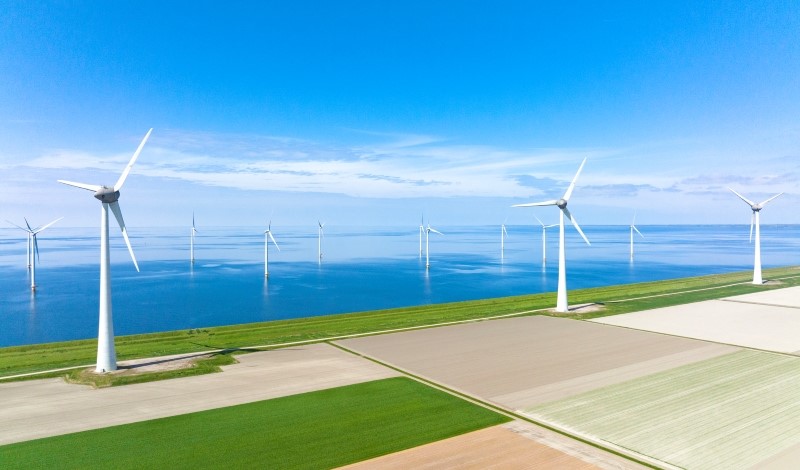
Taxing carbon emissions, although unpopular, may be the best way to fund the fight against climate change.
Across the world, the decarbonization of national economies is underway.
Countries have announced net zero emissions targets and deployed a range of policy instruments to pursue them. These instruments include mandatory emission reduction targets, information-based disclosures, and subsidies for green products and industries. One of the most significant market-based tactics is carbon pricing, which encompasses carbon taxes and emissions trading. In recent research, we find that carbon pricing policies adopted around the world are positively associated with increased innovation in climate-friendly technologies.
The political acceptability of these policy instruments, however, varies considerably. Carbon taxes are particularly unpopular. Voters do not like to pay higher taxes, and they fear that these taxes will increase their energy bills. Energy-intensive industries argue that increased energy costs will hurt their global competitiveness.
The political peril of high energy prices was on full display at the onset of the war in Ukraine, which spiked energy prices worldwide. Consequently, several countries and subnational jurisdictions announced measures to reduce energy costs, including suspending gasoline taxes, using strategic oil reserves to increase oil supply, and even providing a tax subsidy to car owners.
Indeed, Germany, a nation widely viewed as a global climate leader, delayed its plan to increase its domestic carbon price. The price was set to reach about $36 per ton of carbon in January 2023 but the increase is now postponed to January 2024.
Yet other geopolitical factors are encouraging the acceleration of investment in climate technologies. China’s increasingly formidable presence in the technology sector, including in the realm of climate technologies, has alarmed the United States and its allies, which fear the erosion of their geopolitical position and the loss of their competitive edge.
This is why the Biden Administration is spending substantial money under the Creating Helpful Incentives to Produce Semiconductors Act and the Inflation Reduction Act. These acts aim to enhance the United States’ ability to compete in producing futuristic technologies including semiconductors, nanotechnology, quantum computing, and artificial intelligence.
Similarly, the European Union is boosting state support of the electric vehicle industry to strengthen Europe’s competitiveness in the market and decrease its dependence on China.
Given the massive debt facing many countries, however, promoting innovation through unlimited governmental spending is not sustainable. Carbon pricing mechanisms, such as carbon taxes and emission trading, generate revenue. These tools may also provide incentives for research and development in climate technologies.
Businesses often complain that regulations hurt innovation by increasing costs and reducing the profits that are used to finance research and development. They suggest that command-and-control laws that mandate technologies, such as the Clean Air Act, create barriers to entry and encourage incumbent firms to lobby the government to continue with these mandates.
Yet these politically unpopular policies may in fact yield unexpected payoffs for climate technologies. How might carbon pricing instead support innovation? This is where the Porter hypothesis comes in.
Challenging the conventional wisdom that regulations depress innovation, Michael E. Porter and Claas van der Linde suggested that flexible regulations, ones that do not mandate specific technologies, could promote innovation.
Carbon pricing fits well in the description of flexible regulation. As carbon pricing increases energy and input costs, firms have incentives to innovate to offset these cost increases.
In a recent paper, we examined whether an association exists between carbon pricing policies—either cap-and-trade emissions trading or carbon taxes—and patent applications for climate mitigation technologies. We focused on 38 countries that belonged to the Organization for Economic Cooperation and Development (OECD) between 1986 and 2019.
Overall, we found that carbon pricing is associated with an increase of roughly three patent applications per million people in the short run and roughly five patents per million people in the long run. For perspective, between 1986 and 2019, OECD countries filed an average of about 16 patents annually for climate technologies. Moreover, these results hold true irrespective of the size of governmental spending on research and development into energy efficiency, carbon capture and storage, renewable energy sources, nuclear, hydrogen, and fuel cells, other power and storage, and other cross-cutting technologies.
One criticism of any carbon regulation is that by increasing costs, it might motivate firms to relocate abroad to countries without such regulations. This consequence is sometimes called carbon leakage. To discourage such an effect, the European Union is in the process of enacting border taxes to penalize imports from countries with weak climate laws.
Arguably, with carbon leakages, firms can dodge the cost pressures from carbon pricing. Yet our research finds that the innovation-inducing effect of carbon pricing is robust enough to offset carbon leakages.
Climate mitigation creates a global public good and often imposes local costs that are concentrated on specific sectors and communities. This is the crux of the political problem faced by carbon pricing: Specific, carbon-intensive industries would pay higher taxes for the nation as a whole to benefit from the revenue. Our work offers ideas on how to frame the climate debate by emphasizing the local economic benefits of market-based climate policy, namely, greater technological innovation.
Moreover, as public anxiety over China’s rise as a science and technology powerhouse increases and Western countries invest more money into research and development to catch up with China, carbon pricing can prove valuable in complementing initiatives such as the Inflation Reduction Act.





